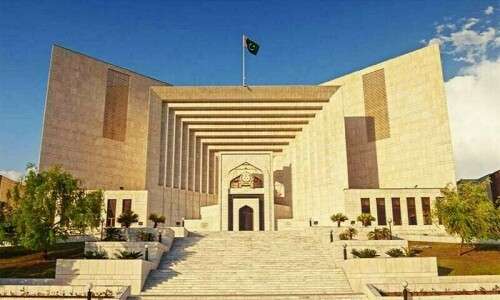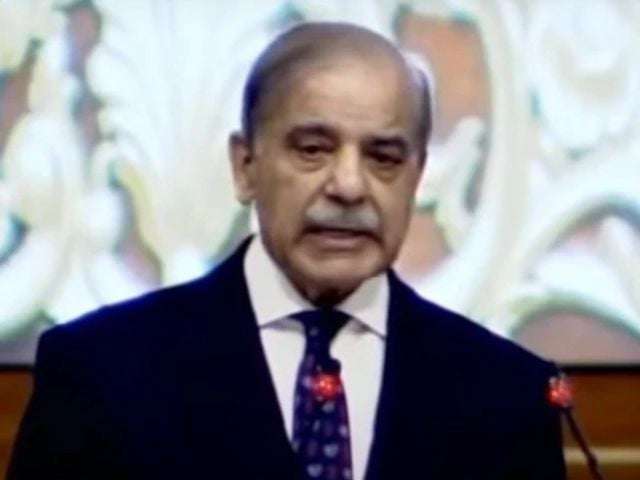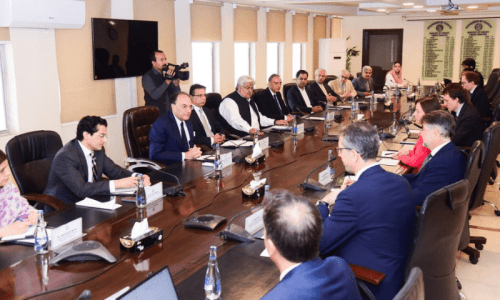The Constitutional Bench of the Supreme Court (SC) of Pakistan has recently taken significant steps in addressing the deeply concerning issue of missing persons. In a notable session on Tuesday, the SC issued notices to the Interior Minister, the Attorney General of Pakistan (AGP), and other related parties involved in the case. The Bench has also asked for detailed reports from all relevant institutions to address the grave concerns regarding enforced disappearances in the country.
This legal development follows the petition filed by former senator and prominent lawyer Aitzaz Ahsan in October 2023. Ahsan, known for his strong advocacy in human rights cases, challenged the practice of enforced disappearances, calling it illegal and unlawful. He sought the intervention of the highest court to bring an end to these violations of fundamental rights. However, the case did not immediately proceed, and the SC had initially returned the petition a month later, citing it as an “individual grievance” rather than a matter of public importance.
Nevertheless, the gravity of the issue forced the Court to reconsider its stance. In January, the SC directed the Commission of Inquiry on Enforced Disappearances to submit a comprehensive report detailing the cases of missing persons, as well as the production orders issued for them. The Court’s decision to revisit the issue was a direct response to the ongoing human rights crisis, with thousands of citizens allegedly being subjected to disappearances, many of them under unclear circumstances.
A Call for Parliamentary Action and Government Accountability
The latest developments in the case came during a hearing where a six-member Constitutional Bench, headed by Justice Aminuddin Khan, convened to deliberate on the matter. Aitzaz Ahsan was represented by advocates Latif Khosa and Faisal Siddiqui, who appeared to highlight the importance of the case and its implications on national security and human rights.
Justice Jamal Khan Mandokhel emphasized the urgency of addressing the missing persons issue and suggested that parliament should take a more active role in solving the problem. He stated that “parliament should prove itself to be supreme” and that this matter, which had affected the lives of thousands of people, should not be left to rhetoric alone.
During the session, Deputy Attorney General Javed Iqbal Younis informed the Court that the missing persons issue had been discussed in the federal cabinet a day before the hearing. The cabinet had formed a sub-committee tasked with presenting its recommendations to the government. The assurance given by the Deputy Attorney General indicated the government’s willingness to work towards a resolution, despite the complex and politically sensitive nature of the case.
However, Justice Mandokhel reiterated that mere discussions or political rhetoric would not solve the problem. He urged that concrete actions be taken, especially in light of the ongoing human suffering caused by these disappearances.
Judicial Investigation and Accountability of the Enforced Disappearances Commission
Justice Muhammad Ali Mazhar raised an important question regarding the effectiveness of the Commission of Inquiry on Enforced Disappearances, which had been established to look into such cases. He inquired about the number of recoveries made by the commission and questioned whether it had any concrete information about the perpetrators behind these disappearances.
Justice Hassan Rizvi further questioned the commission’s ability to identify who was responsible for these enforced disappearances. He pointed out that individuals who had returned after being missing often chose not to speak about the circumstances of their abduction.
In response, Justice Mandokhel humorously remarked that some of the returned individuals claim they had simply gone on a “vacation to the northern areas,” indicating the reluctance of missing persons to disclose details about their abductions. This observation highlighted the difficulty in obtaining clear and reliable information from those who have been subjected to enforced disappearances.
Political Sensitivities and Calls for Judicial Integrity
Advocate Latif Khosa, in his remarks, spoke about the political aspects of the missing persons issue, suggesting that the country had become a “deep state.” This remark led Justice Mandokhel to stop him, urging that the Court refrain from discussing political matters during judicial proceedings. Instead, Justice Mandokhel insisted that a joint session of parliament should be convened to find a comprehensive solution to the issue.
The question of whether missing persons should be addressed through constitutional amendments, like the 26th Constitutional Amendment, was also discussed. Justice Mandokhel stated that such an amendment would be reviewed at an appropriate time, signaling that the Court was not dismissing the possibility of future legal reforms.
Khosa also pointed out that many of the missing persons hailed from Balochistan, a region that has seen significant unrest in recent years. Justice Mandokhel acknowledged this, stating that the people and the Court were looking to parliamentarians for a resolution to this pressing issue.
The Role of the Court in Protecting Citizens’ Rights
At one point during the session, Aitzaz Ahsan emphasized that parliament did not possess judicial powers to address the root causes of enforced disappearances. This remark underscored the importance of judicial oversight in addressing such critical human rights violations.
Justice Musarrat Hilali, in her turn, asked whether PTI workers had also faced enforced disappearances. Advocate Khosa confirmed this, leading Justice Hilali to probe further, asking whether these individuals were aware of who was responsible for their abductions. Khosa, in response, alluded to the possibility that future generations of these individuals might also face similar fates.
Advocate Faisal Siddiqui drew attention to the fact that some people have been missing for decades. He pointed out that previous court orders regarding missing persons were still not being implemented properly, with certain judicial orders allegedly being “missing” themselves.
The State’s Responsibility and the Need for Action
Justice Naeem Akhtar Afghan shared a poignant anecdote about 25 lawyers who had appeared in a Balochistan case concerning missing persons. He explained that some of these individuals had returned after intervention by the Balochistan High Court. However, when asked to appear in court and testify, many refused to speak out, despite the clear directive to do so. This refusal to testify only deepens the mystery surrounding the issue, as the judicial system struggles to find answers.
The underlying issue, as Justice Afghan suggested, is the lack of courage among those who have returned to confront the institutions or individuals responsible for their abductions. If such cases were to be prosecuted, it would require individuals to stand up and testify against those involved.
The session concluded with a reiteration of the Court’s commitment to finding a solution to the issue. Justice Khan affirmed that the Court would continue to move towards a resolution, urging stakeholders to engage in dialogue and seek a way forward.
FAQs
1. What are enforced disappearances?
Enforced disappearances refer to situations where individuals are abducted by state or non-state actors, and their whereabouts are concealed. The victims are often deprived of their right to legal recourse, and their families are left without any information.
2. What is the Supreme Court’s stance on missing persons?
The Supreme Court has taken serious notice of the issue of missing persons in Pakistan, calling for accountability and urging the government to take action. The Court has directed relevant institutions to submit detailed reports to aid in resolving the issue.
3. How can missing persons be addressed legally in Pakistan?
Legal resolutions require the involvement of the judiciary, legislative bodies, and relevant agencies. The Court has called for parliamentary action and judicial intervention to address enforced disappearances and ensure justice for victims.
4. What role does the Commission of Inquiry on Enforced Disappearances play?
The Commission investigates cases of enforced disappearances, seeks to recover missing individuals, and holds those responsible accountable. However, it has faced challenges in obtaining clear testimonies from those who have returned.
5. What is the significance of the missing persons issue for Pakistan’s democracy?
The missing persons issue is critical for Pakistan’s democracy because it highlights the erosion of fundamental human rights, including the right to life and liberty. It reflects the struggle between state institutions and citizens’ rights, making it a core issue for the country’s legal and political systems.
ALSO READ:
https://flarenews.pk/2024/12/03/us-strict-export-controls-semiconductors-china/



